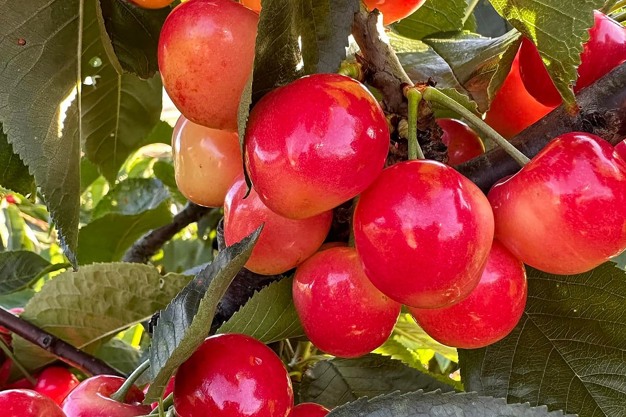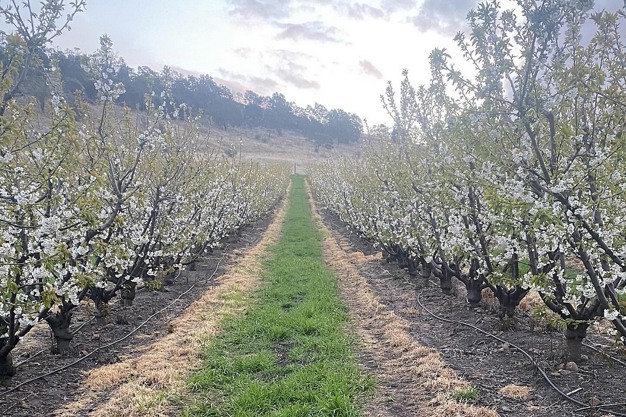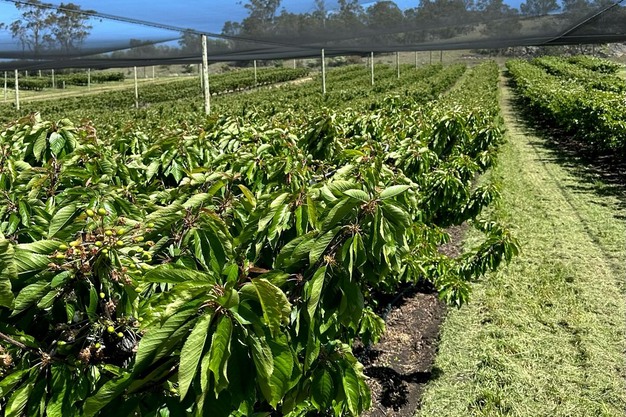With a Tasmanian cherry orchard harvest fast approaching the team at Somercotes are very excited about the promise of this season.
David Allanson, who has been a cherry grower in Tasmania for many years, has taken the role of Farm Manager at Somercotes Cherries in Ross, Tasmania. He says the Somercotes starts harvesting in December, and the early fruit set signs are positive.
"We have had a good spring and winter this year in our special part of Tasmania," he said. "We have been lucky that the country's current unpredictable weather has missed us, and it has been good weather for pollination and at the moment the fruit is setting very well - so far so good. things can change in an instant, but fingers crossed it is looking very positive. We usually start harvest around December 15 through to February 20. As always it's slow at the start then we hit our full production from January onwards - at the moment it looks like it will be a very positive year for us."

Images courtesy Somercotes Cherries Facebook page.
Somercotes now produces around 20 varieties across 50 hectares, and Mr Allanson explains that there has been a lot of infrastructure work at the property, which has had a positive boost on production, with assisting in protecting our crops from birds and frost.
"The farm started producing cherries in the year 2000, and around 15 hectares was originally planted," he said. "In 2018, Somercotes began planting and expanding along the Midland Highway. Over the last few years we have embarked on several projects including installing bird netting that covers all of our orchards, building the latest irrigation technology and frost fans for frost mitigation."

The Somercotes farm was settled in 1823 by Captain Samuel Horton and is one of a select number of Australian properties that have remained in continual family hands, and today it is still owned by the Riggall family. Mr Allanson added that the location in Ross, midland Tasmania is the perfect climate for growing cherries, and the farm still has the remnants of the historic Horton College portico.
"We have consistent cool temperatures over winter which assists our chill hours for our cherry trees to set our buds to create fruit. We also have mild summers with less rainfall over the harvest period which allows us to grow very sweet cherries as they are left on the tree much longer," Mr Allanson said.

Mr Allanson says that the fruit is handpicked from the trees to supply local, interstate and export markets.
"We are excited about this coming season and providing our amazing product to cherry lovers around the world," he added.
For more information
David Allanson
Somercotes Cherries
Phone: +61 3 6381 5231
[email protected]
www.somercotes.com
